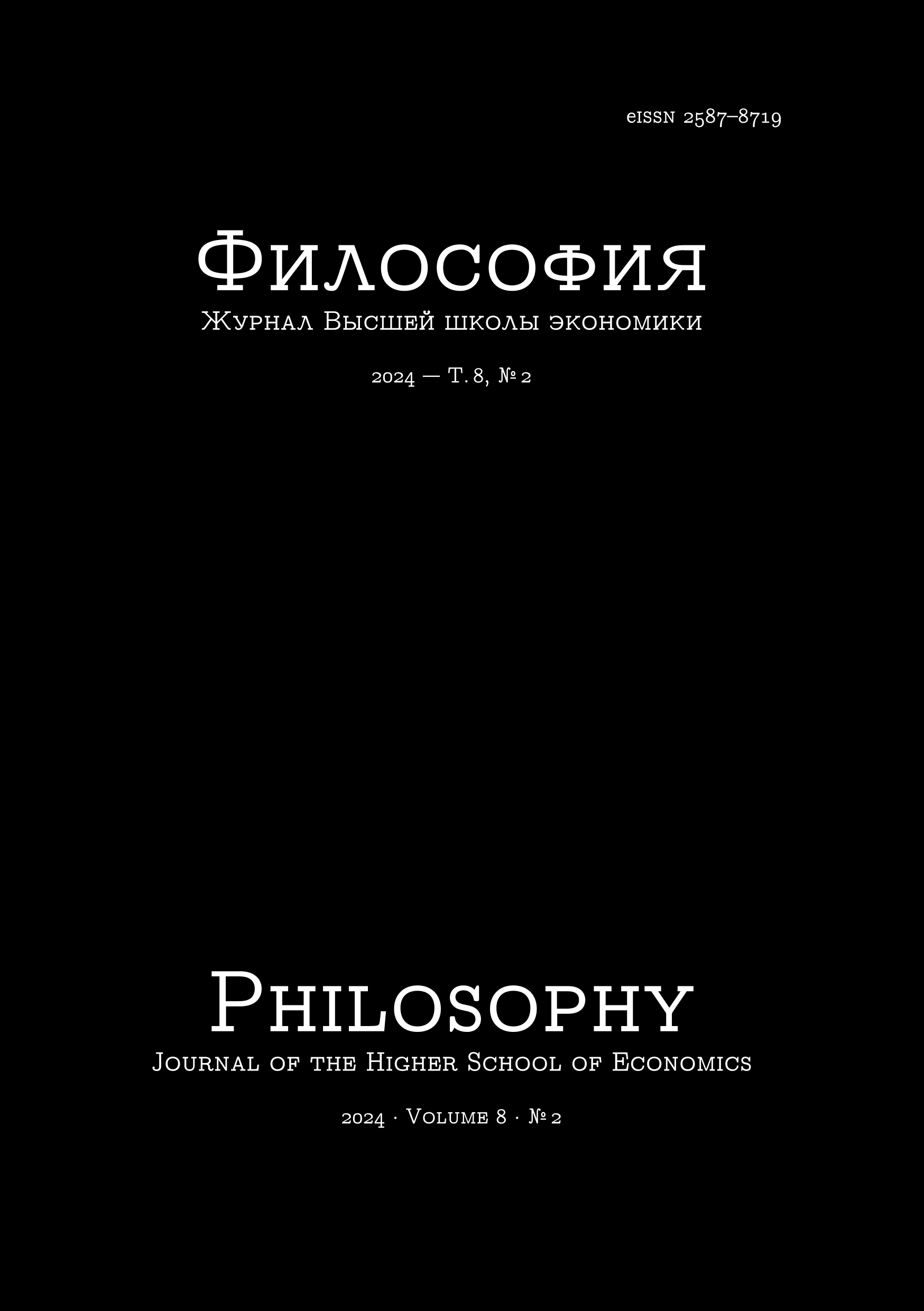The Self as a Subject of Cognition
Between Objectification and Elimination
Abstract
The article presents an approach to the study of subjectivity as a condition for the possibility of conscious experience, which does not allow, on the one hand, the objectification of the subject of cognition, considering it as а thing among other things of the conscious world, and on the other — its formalization and elimination. In the transcendentalism of I. Kant and in the transcendental phenomenology of E. Husserl, the Self as a condition for the possibility of experience turns out to be beyond experience. An attempt of phenomenology to see in subjectivity a concrete, meaningful basis of experience and at the same time to take into account its transcendental character is the development of the idea of the “embodiment” of the subject (late Husserl, M. Merleau-Ponty, etc.). On this path, it is possible to avoid the transformation of the subject into an intraworldly being, but the assumption of the embodiment of subjectivity means its facticity, i.e. the conceivability of other forms of subjectivity that condition other semantic worlds with other laws, and thus a shift occurs from transcendentalism to dogmatism. The rethinking of subjectivity by the author on the basis of a reformed transcendental method that does not imply apriorism makes it possible to avoid, on the one hand, the facticity of the transcendental subject, and, on the other, its elimination, and to substantiate the possibility of studying it as a meaningful basis of individual conscious experience, as a condition for the possibility of cognition of oneself and the other.
Downloads
Copyright (c) 2024 Philosophy Journal of the Higher School of Economics

This work is licensed under a Creative Commons Attribution-NonCommercial 4.0 International License.






